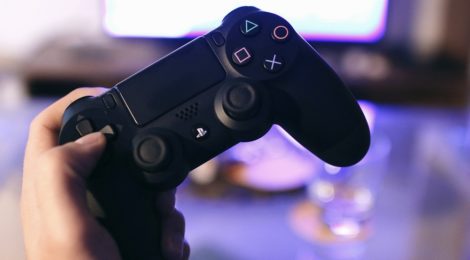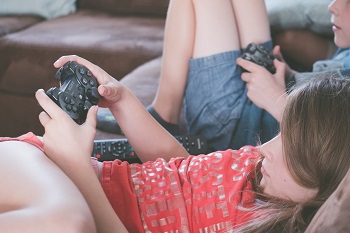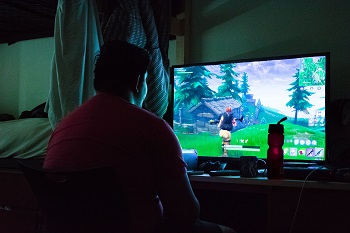
Health Repercussions Seen in Gaming Addiction
“At one point I was alone in the house for about a week. Before that, my brother would usually be home, and the computer was in his room so I could be there for 15 hours a day – but now I could be there 24/7. So, I did. I barely slept, and ate nothing but dry cereal, bread, and canned pop – if anything at all. I lost 8 pounds and by the end all I wanted to do was get back on the computer again.”
Gregory (name changed to protect anonymity) is a 23-year-old man who suffered from a gaming addiction throughout his teens. Video game addiction is a serious affliction that the World Health Organization describes as a pattern of out of control gaming lasting at least 12 months. It involves the prioritization of gaming over other interests and daily activities and the continued escalation of gaming despite negative consequences affecting one’s relationships, education, or occupation. This condition is estimated to have a prevalence of 0.7-27.5%, regardless of geographical region, with males ages 18-24 at the highest risk.
Many may have heard of extreme cases in the media where a gaming addiction led to serious consequences. For instance, one couple neglected their daughter until she died of malnutrition, and one man died after playing 50 consecutive hours of battle simulation games. Though these dramatic cases are uncommon, many people with gaming addiction suffer from smaller, less severe health problems which can add up over time and create meaningful repercussions.

In an interview with the Trauma and Mental Health Report, Jason Conover, a licensed clinical social worker at Intermountain Healthcare, identified crucial areas that may be given inadequate attention when one suffers from gaming addiction: “With this condition, individuals’ gaming is in direct competition with the three pillars of health: exercise/movement, nutrition, and sleep.”
In regard to the first pillar, Conover explains that:
“One of the challenges is the lack of physical activity. You’ll sit there for long periods of time without much movement. What can go along with that is missing out – if I’m gaming, I’m probably not biking, skiing, walking, or a variety of other healthy activities.”
As for the other two pillars, gaming addiction has been linked to risky eating habits which can contribute to depression or lead to obesity and nutrition disorders. This may be due to the poorer nutritional content of meals and the de-prioritization of basic needs. Sleep deprivation is also common among those with gaming addiction and can impact mental health and heart health, as well as the metabolic system, including blood sugar levels and blood pressure.
The bodily neglect resulting from this disorder can be substantial. As Gregory recalls:
“Life often became a blur of 10-16-hour days of sitting almost constantly. One time in particular, I tried to get up after a long period of sitting and I didn’t feel my legs. I just completely toppled over and had to wait for feeling to return to my legs – which was incredibly uncomfortable. Blood clots and similar things are possible in such situations- it’s needlessly dangerous.”

Video game addictions arise from, and are sustained by, the interplay of biological, psychological, social, and cultural factors. For instance, an addicted gamer may be drawn to the clear goals offered by games that the real-world lacks, or the social comfort games can offer when one feels out of place with their real-life peers. Conover elaborates:
“The game invites a kind of self-betrayal. It becomes more important than the other components of their life. The gamer knows they have things they need to do, but they betray that and create a story. “One more game, one more level. I’ve got all my buddies counting on me.” So, they end up compromising their integrity, and every time they do that it becomes deeper and deeper.”
However in some cases, gaming may be helpful, and even aid health outcomes by being used in pain management, or for physical and psychological therapies. Still, moderation and mindfulness are key. Conover says that:
“Mindfulness should be practiced, rather than prescribed rules. Rules and limits can make the problem worse, like a diet. Instead, it’s about practicing mindfulness and seeing if the game has any real value in their life – if it’s bringing them improvement, joy, energy, peace. Using that mindfulness, they’d be able to say, “Wow I’ve been sitting here for 3 hours. Might be nice to go biking or run around the block.”
Research shows that mindfulness can change the brain physiologically as we become more present and awake, which helps counter the dissociated state that can come with excessive gaming. Moving forward, this may be a useful strategy to combat the physical effects of gaming addiction.
– Deanna Gisborne, Contributing Writer
Image Credits:
Feature: Public Domain at Piqsels, Creative Commons
First: Jessica Lewis at Pexels, Creative Commons
Second: Public Domain at Piqsels, Creative Commons



